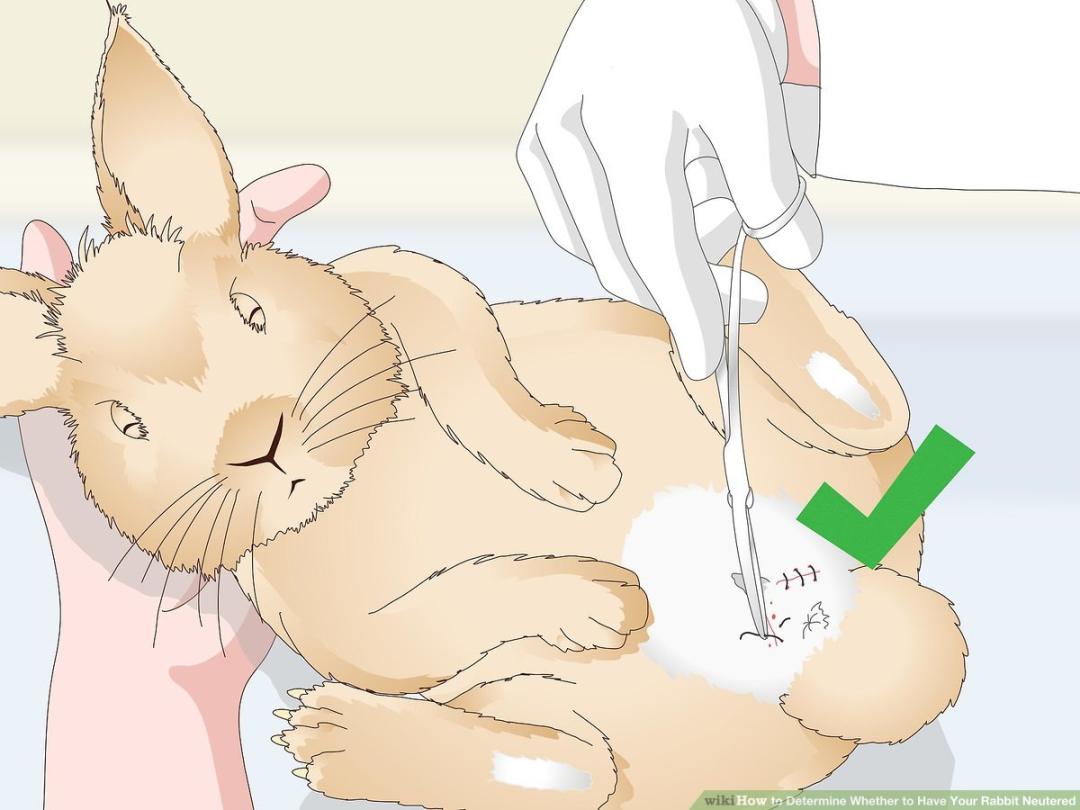Do Male Rabbits Need to Be Neutered?
Neutering is a common practice among pet owners, but when it comes to male rabbits, there is often confusion about whether or not it is necessary. In this article, we will explore the reasons why male rabbits should be neutered and address some common misconceptions.

Why Should Male Rabbits Be Neutered?
Neutering male rabbits is highly recommended for several important reasons:
- Preventing unwanted pregnancies: Male rabbits have a strong instinct to reproduce, and if left intact, they can impregnate multiple females. This can quickly lead to an overpopulation problem, especially if the rabbits are not kept in separate enclosures. Neutering eliminates the risk of unintentional breeding.
- Reducing aggressive behavior: Intact male rabbits can exhibit aggressive behavior, especially towards other males. Neutering helps to reduce aggression and territorial tendencies, making them more sociable and easier to handle.
- Eliminating health risks: Neutering lowers the risk of certain health issues in male rabbits. Testicular cancer, which is relatively common among intact males, can be completely prevented by neutering. Moreover, neutering can also reduce the chances of urinary problems and other reproductive-related diseases.
- Marking and spraying: Unneutered male rabbits often mark their territory by spraying urine or leaving droppings around the house. Neutering can significantly reduce this marking behavior, making them more suitable as indoor pets.
Common Misconceptions about Neutering Male Rabbits
Despite the benefits, there are some misconceptions that prevent owners from neutering their male rabbits. Let’s address a few of them:
- My male rabbit is the only pet: Even if your male rabbit is the only pet in the household, neutering is still recommended. It helps to prevent unwanted behaviors, reduces the risk of certain health problems, and can generally improve the rabbit’s overall well-being.
- Neutering will make my male rabbit fat: While neutering can cause a decrease in metabolism, leading to weight gain if not managed properly, this can be easily controlled through a balanced diet and exercise. It is important to monitor their food intake and provide ample opportunities for exercise to maintain a healthy weight.
- My male rabbit’s behavior will change drastically: Neutering can indeed have an impact on a rabbit’s behavior, but it is mostly positive. Male rabbits often become calmer, less aggressive, and more affectionate after being neutered. This can enhance the bond between the rabbit and its owner.
- My male rabbit is too old to be neutered: While it is true that the younger the rabbit, the easier the surgery and recovery, male rabbits of any age can be neutered. It is always recommended to consult with a veterinarian to assess the risks and benefits based on the individual rabbit’s health and age.
Frequently Asked Questions
1. At what age should I neuter my male rabbit?
It is generally recommended to neuter male rabbits between 4 and 6 months of age. However, rabbits can be neutered at any age, and it is best to consult with a veterinarian to determine the ideal timing for your specific rabbit.
2. Is neutering a male rabbit expensive?
The cost of neutering a male rabbit can vary depending on the veterinarian and location. However, neutering is typically less expensive than spaying a female rabbit. It is advisable to inquire about the cost beforehand and consider it as a necessary investment for your rabbit’s health and well-being.
3. How long does it take for a male rabbit to recover from neutering?
The recovery time for a male rabbit after neutering is usually around 1 to 2 weeks. During this time, it is important to provide a calm and clean environment for the rabbit to rest and heal. Follow the post-surgery care instructions provided by your veterinarian to ensure a smooth recovery.
4. Can neutering my male rabbit change his personality?
Neutering can indeed have an impact on a male rabbit’s behavior, but it is usually for the better. Neutered rabbits are often calmer, less aggressive, and more affectionate. Their personality may not change drastically, but they may become more sociable and easier to handle.
Overall, neutering male rabbits is highly recommended to prevent unwanted pregnancies, reduce aggression, eliminate health risks, and minimize marking behavior. Despite some misconceptions, neutering can bring numerous benefits to your rabbit’s well-being. Consult with a veterinarian to determine the best timing and approach for neutering your male rabbit and ensure a healthy and happy life for your furry friend.
Related Articles…
Copyright Notice:
All images on this website are obtained from the internet and remain copyrighted to their original owners. If you hold copyright to any image and want it taken down, please reach us.